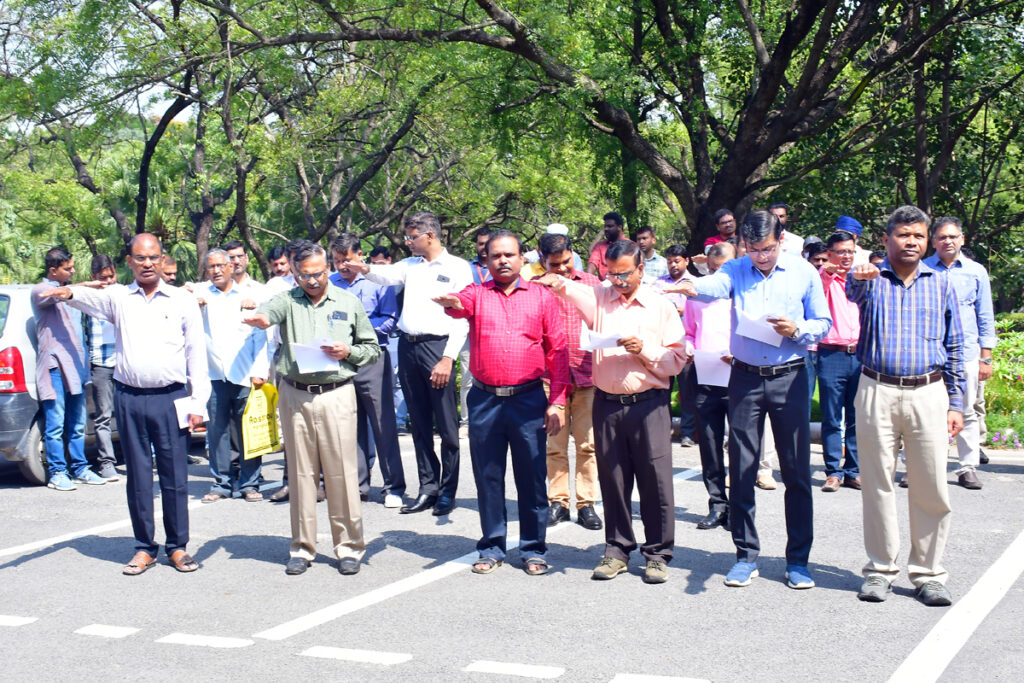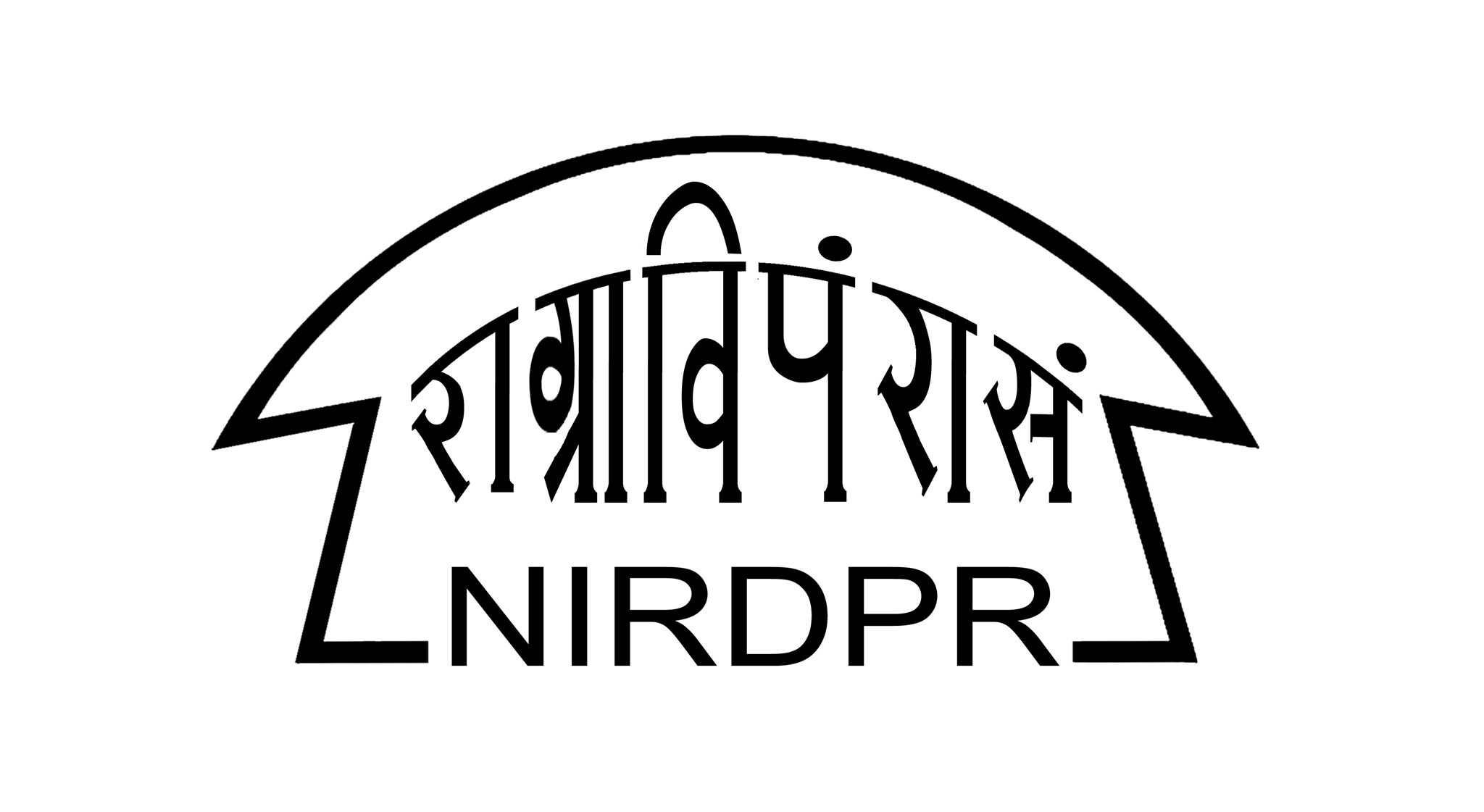
CONTENTS:
COVER STORY: Narrowing Down the Gender Gap: Impact of Rural Development Initiatives
NIRDPR Celebrates 64th Foundation Day
NIRDPR Organises Two-day National Conclave of State Finance Commissions
First Sub-Committee of Parliament on Official Language Visits Hyderabad
International Training Programme on Good Governance for the Management of Rural Development Programmes
Meeting of Social and Behaviour Change Communication Coordination Committee at NIRDPR
Training cum Exposure Visit of Elected Representatives from PRIs of Jammu & Kashmir
CGARD, NIRDPR Organises Workshop on eDPR Application
NIRDPR Observes Constitution Day; Organises Lecture on Constitution’s Blueprint for National Development
NIRDPR Observes Vigilance Awareness Week
COVER STORY:
Narrowing Down the Gender Gap: Impact of Rural Development Initiatives
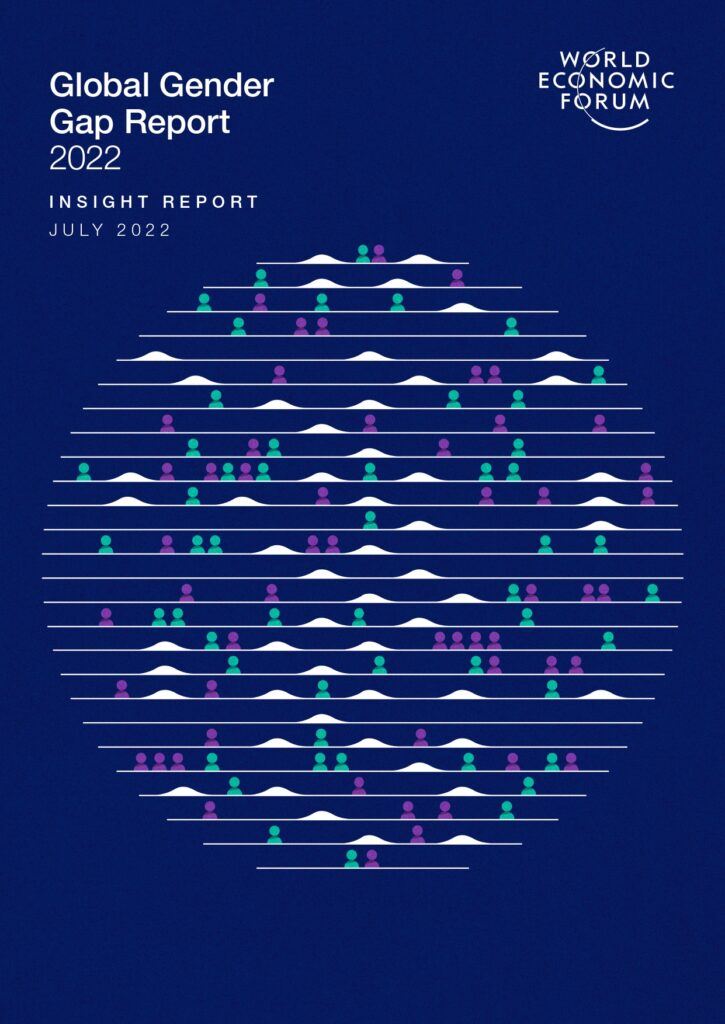
The World Economic Forum has been publishing Global Gender Gap Report every year since 2006. This report helps to track progress towards gender parity and compare gender gaps across countries in four dimensions, namely economic opportunities, education, health and political leadership. India has shown progress in other dimensions except for the sex ratio; this is relatively low and pulls down the overall score. The share of women in professional and technical roles is notable in India. With regard to the share of women in senior positions, India has progressed in closing the gender gap.
When it comes to political leadership, women’s share of years in political leadership over the past 50 years has been reduced because of no parity in Parliamentary and Assembly seats, as well as leadership positions of the government. The Global Gender Gap report does not consider women in local governance where there is a reservation of seats for women. However, in terms of women’s political empowerment, South Asian countries are performing well ahead of the countries in the Middle East and North Africa, East Asia and the Pacific and Central Asia.
India is considered as an unequal economy with less than 65 per cent of wealth equity. This is mainly because of the absence of adequate care facilities and poor infrastructure available to women. The unpaid care work which women provide on most occasions within the family and community add to the challenges of generating wealth. This raises an important question relating to the role that purpose-driven programmes and schemes are meant for development in general, and women in particular.
Development programmes in India keep women at the centre of the fulcrum. For example, programmes like Deendayal Antayodaya Yojana – National Rural Livelihoods Mission (DAY-NRLM) believe in harnessing the innate capabilities of the poor and complement them with capacities by providing information, knowledge, skills, tools, finance and collectivisation to participate in the growing economy of the country. In addition, the poor would be facilitated to achieve increased access to rights, entitlements and public services, diversified risk and better social indicators of empowerment. Studies have shown that, nevertheless, the Self-Help Groups (SHGs) formed under this programme remain confined to being microfinance units rather than vibrant business entities.
The COVID-19 pandemic has further disrupted the activities, and there has been a massive impact on the savings and income generation activities of these SHGs. DAY-NRLM should be strengthened, and support should be given to SHGs to become business entities and meet all their social odds. For the current financial year, the scheme has a great influx in the budget with an increase of 48 per cent from the last year. Now, it is time to make the programme more transformative and address the livelihood challenges women face.
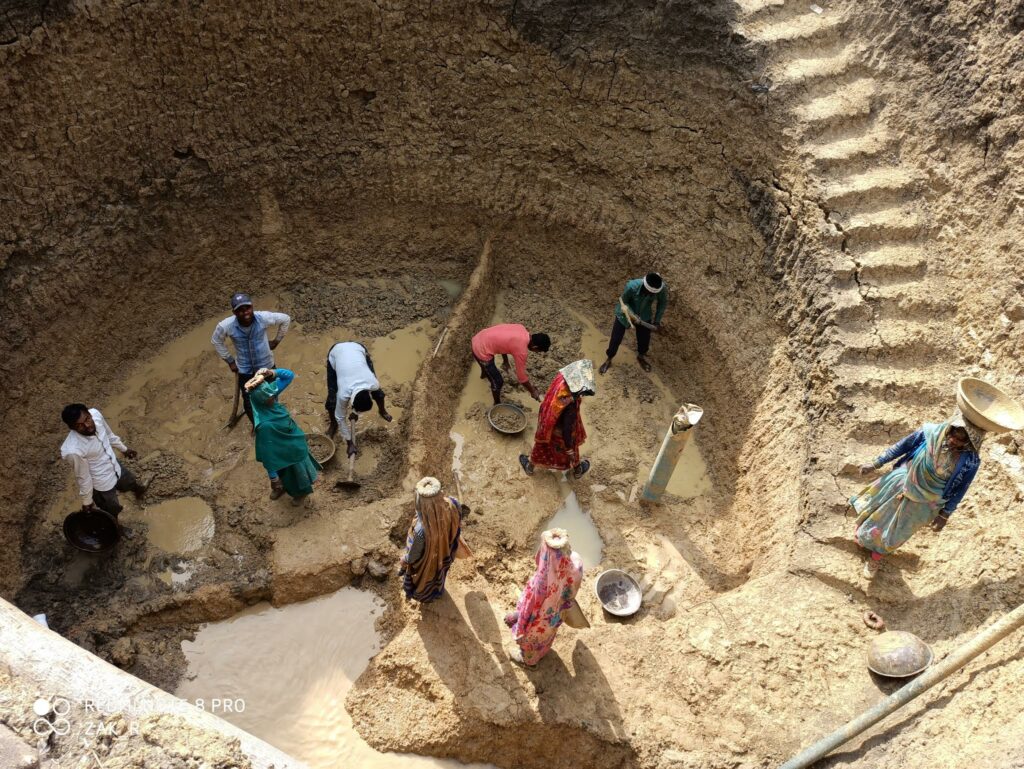
The present Global Gender Gap report shows that labour-force participation has shrunk for both men (by -9.5 percentage points) and women (-3 percentage points) since 2021 and there is no parity in wage equality. Mahatma Gandhi National Rural Employment Scheme (MGNREGS) also strives to close the gender gap in paid employment. This is a gender-positive programme which promotes the participation of women by providing wage parity with men, provision of separate schedule of rates of wages for women, facilities for crèche, work-side sheds for children and childcare services. In convergence with DAY-NRLM, women mates have also been introduced, which again facilitates the participation of women. For the financial year 2021-22, women participation rate under this programme remains at 54.54 per cent. These women are either out of the labour force or working in unpaid work. In line with the findings of many research studies, paid employment through this scheme has strengthened women’s bargaining power within the household.
However, transformative gender equality requires action addressing macro structures that create gender inequalities in the first place, including social norms, and interconnections with economic power which are deep-rooted in gender relations across the economic, social and political spheres. Equitable rewards for women and men measured in terms of pay and benefits, good work standards, comprehensive social infrastructure, expanded and equitable provisions for care-related events and accessible financial instruments are enabling factors to make gender equality happen.
Dr. Vanishree Joseph
Assistant Professor,
Centre for Gender Studies and Development, NIRDPR
NIRDPR Celebrates 64th Foundation Day
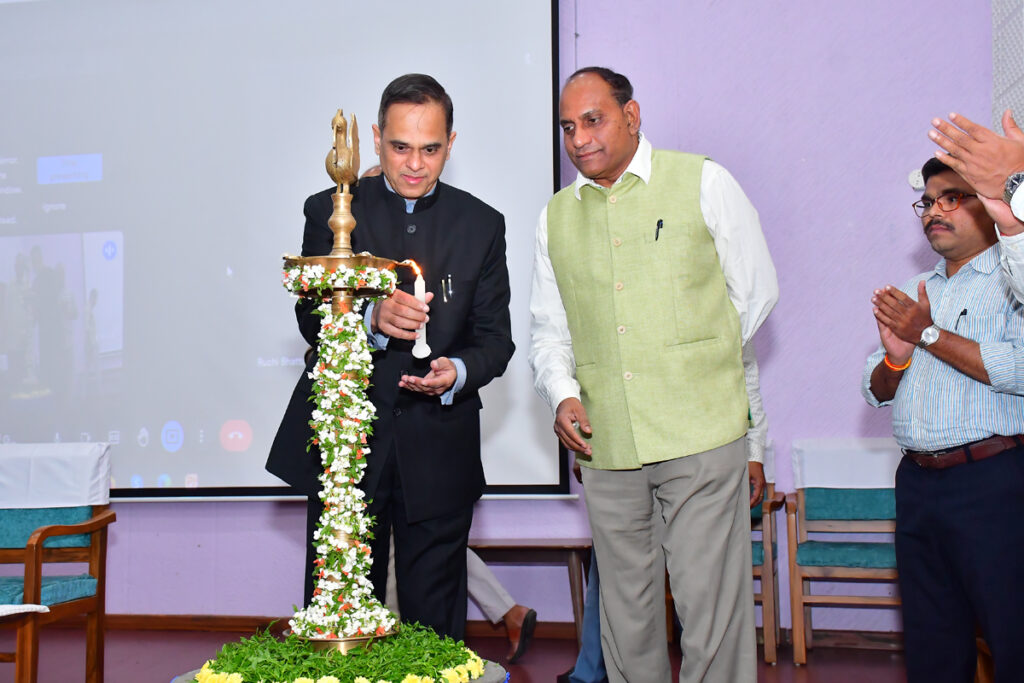
The National Institute of Rural Development and Panchayati Raj (NIRDPR) celebrated its 64th Foundation Day on 18th November, 2022. Marking the day, a Foundation Day memorial lecture by Shri V. Srinivas, IAS, Secretary, Department of Administration Reforms and Public Grievances, Ministry of Personnel, on the topic ‘75th years of Governance Reforms: Retrospect and Prospects for Rural Development’ was organised. Shri V. Srinivas is a Rajasthan cadre IAS officer, who has been in service for 34 years.
The programme began with the lighting of the lamp by the Foundation Day Committee. Shri Shashi Bhushan, ICAS, Deputy Director General, NIRDPR, in his welcome address, detailed the significance of NIRDPR in policymaking, capacity-building programmes for National Rural Livelihoods Mission and Deen Dayal Upadhayay Grameen Kaushalya Yojana.
In his opening remarks, Dr. G. Narendra Kumar, IAS, Director General, NIRDPR mentioned that governance plays a key role in the effective delivery of rural development initiatives and capacity building programmes. He pointed out that various studies have come up with the results that several States, which have implemented governance reforms, had done well in the development indicators.
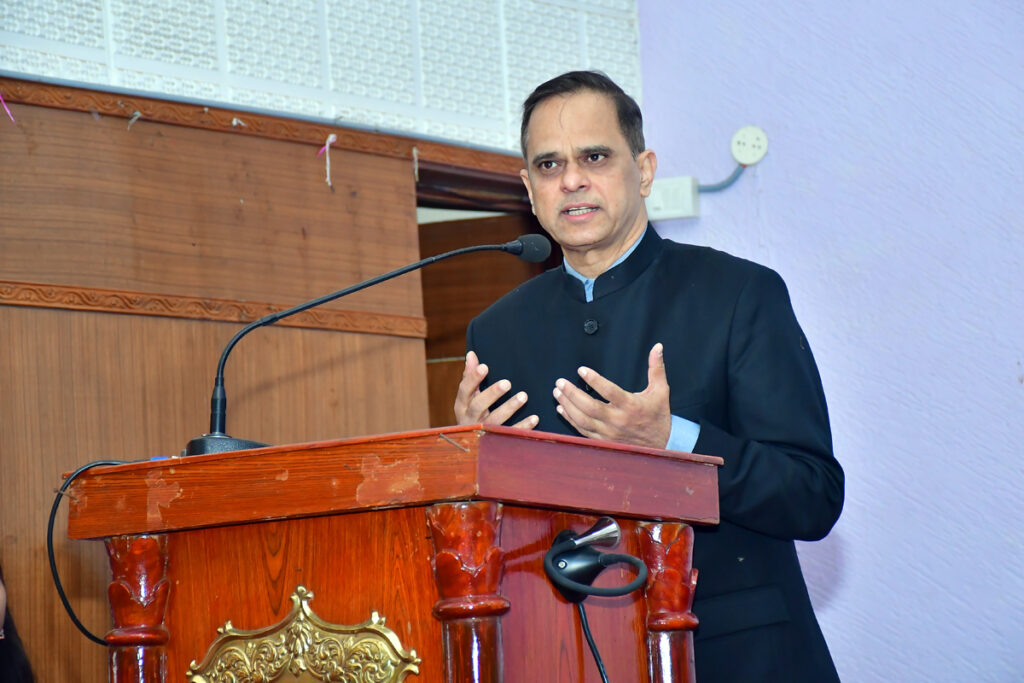
Shri V. Srinivas began the lecture by highlighting the significance of administrative reforms. “Administrative reforms is one of the key features of Secretariat Governance and District Governance. The modernisation in governance has eased the interface with citizens. Many e-governance initiatives have been put in place across the length and breadth of the country, namely MahaRERA in Maharashtra, e-office, and Passport Sewa Kendras.
He further touched upon the recent initiatives of the government. These include Special Campaign 2.0 (October 2-31, 2022), which was aimed at institutionalising swachhata and minimising pendency in government and focusing on digitisation and digitalisation, efficient management of office spaces, enhancement of office spaces, environment-friendly practices and inclusivity measures, Good Governance Week or Sushasan Saptah (December 20-25, 2021) that witnessed a nationwide campaign for Redressal of Public Grievances and Improving service Delivery which in all District, States, Union Territories of India, Good Governance Index 2021, an Assessment of State of Governance in States/ UTs on a biannual basis, National e-services Delivery Assessment 2022, an Assessment of Staes and Central Ministries on the depth and effectiveness of e-Governance service delivery, and the PM’s Awards for Excellence in Public Administration acknowledge, recognise and reward the exemplary work done by civil servants across the country.
Shri V. Srinivas also listed a few success stories on innovations at the district level, such as the Navpravartan Startup Zone in Chanpatia of West Champaran Bihar that helped returnee migrants of COVID-19 to set up their own brand with the help of district administration and thereby creating thousands of direct and indirect employments in their home district, Project Sampoorna at Bongaigaon District, Assam that was aimed at reduction in malnutrition among children in Bongaigaon district, by employing a decentralised, technology model using community participation and women empowerment, etc.
He also referred to Pradhan Mantri Jan Dhan Yojana, a mission on financial inclusion with the objective of comprehensive financial inclusion of all households in the country, Pradhan Mantri Awas Yojana, which was launched in 2015 in pursuance of India’s Mission of Housing for all, Skill India to meet the requirement of the skilled industrial workforce necessitated by India’s sustained growth rates, etc.
He also spoke of success stories in sustainable farming, including Darbhanga foxnut/makhana initiative, Chandauli and Sidharth Nagar black rice initiative and Jorhat King chilli initiative and also talked about the water conservation initiative of Solapur district, Maharashtra and Namsai district in Arunachal Pradesh.
Shri V. Srinivas further mentioned the CPGRAMS portal was created as a platform for the redressal of citizens’ grievances. In the year 2021, it received 21 lakh public grievance cases; of this, 19.95 lakh cases were addressed. He also briefed about the conferences on the replication of good governance practices, National Good governance Webinar series and Vision India@2047.
He concluded the lecture by saying that the effort is to bring the government and citizens together by use of digital technology pursuing next-generation reforms with the policy objective of ‘Maximum Governance- Minimum Government.’, which requires considerable reengineering of government process, excellence in digital initiatives and emerging technologies, etc.
The lecture was followed by a Q&A session. Dr. G. Narendra Kumar, IAS, Director General, NIRDPR honoured Shri V. Srinivas with a memento and shawl. The event was graced by NIRDPR faculty, staff, students and participants.
The video link to the lecture is provided below:
NIRDPR Organises Two-day National Conclave of State Finance Commissions
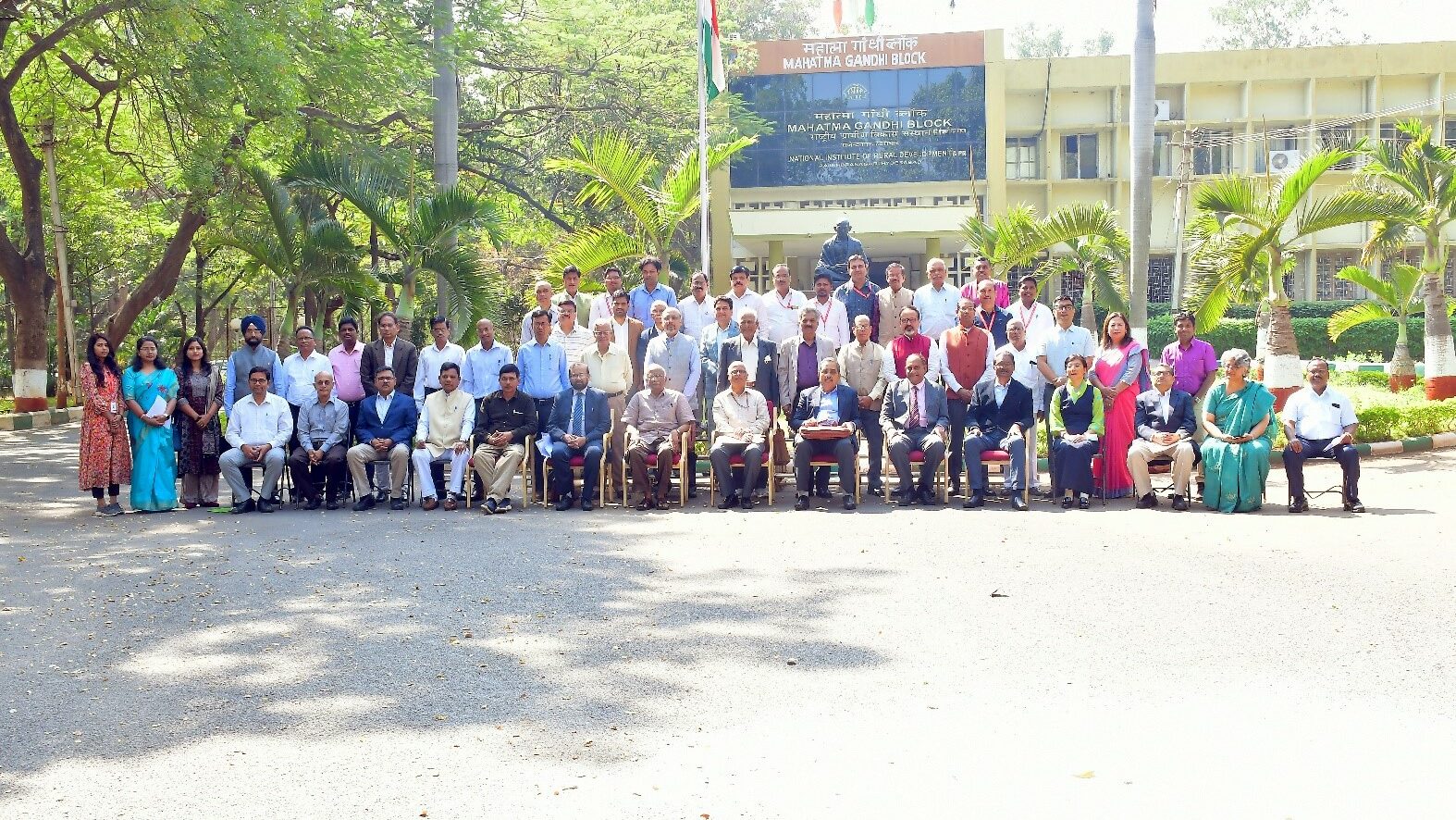
The State Finance Commission (SFC) is a unique institution created under the Constitution of India to rationalise the fiscal relations between States and local governments. The tasks of SFCs are patterned in consonance with the Union Finance Commission (UFC) as provided in Article 280 of the Constitution. Following the 73rd and 74th Amendments, two sub-clauses were added to Article 280(3), which require the Central Finance Commission to recommend measures needed to augment the consolidated fund of a State to supplement the resources of the RLBs and ULBs in the State “on the basis of the recommendations made by the Finance Commission of the State.”
Despite considerable measures to empower the LGs through the devolution of funds, there is still a huge mismatch between the functional responsibilities and financial autonomy at the LG level. In most of the States, the Panchayats are not generating own source revenues (OSR) adequately and depend upon the higher level of governments to finance their activities.
Against this background, the National Institute of Rural Development and Panchayati Raj (NIRDPR) organised a two-day ‘National Conclave of State Finance Commissions-2022’ at Hyderabad during 29-30 November 2022. The conclave focused on the following key issues for all-round analysis and working of SFCs.
- Devolution formula adopted for the Local governments
- Processing and decisions on SFC recommendations
- Issues in the implementation of SFC recommendations
- Coordination/correlation between SFC and CFC recommendation and implementation
- Suggestions of SFC for generating OSR
- SFC recommendations on improving local governance
The inaugural session was graced by Shri Sunil Kumar, Secretary, Ministry of Panchayati Raj, Dr. G. Narendra Kumar, Director General, NIRDPR, Dr. Chandra Shekhar Kumar, Additional Secretary, Ministry of Panchayati Raj, Shri S. M. Vijayanand, Former Secretary, Ministry of Panchayati Raj and Dr. Ashok Lahiri, Member of 15th Finance Commission. About 40 distinguished dignitaries comprising Chairpersons & Members of SFCs, Secretaries of Panchayati Raj and Finance departments of States/UTs and representatives from research institutions participated in the conclave. The conclave was inaugurated by Dr. Ashok Lahiri. At the outset, Dr. Anjan Kumar Bhanja, Associate Professor & Head, CPRDP&SSD, NIRDPR welcomed the participants.
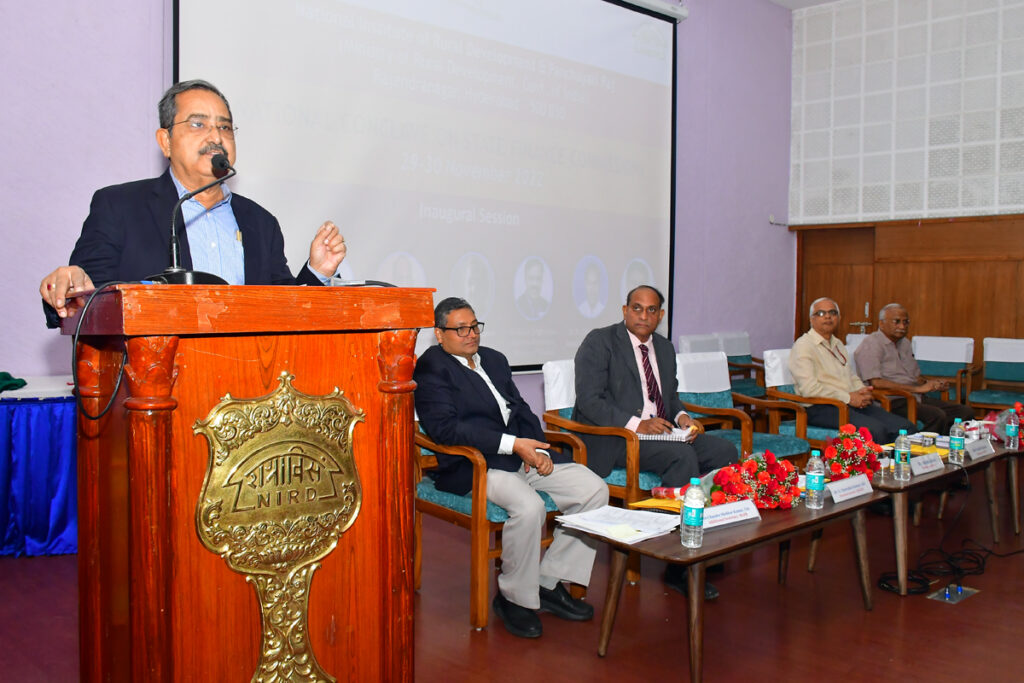
Dr. G. Narendra Kumar, Director General, NIRDPR highlighted the following issues for all-round analysis and working of SFCs.
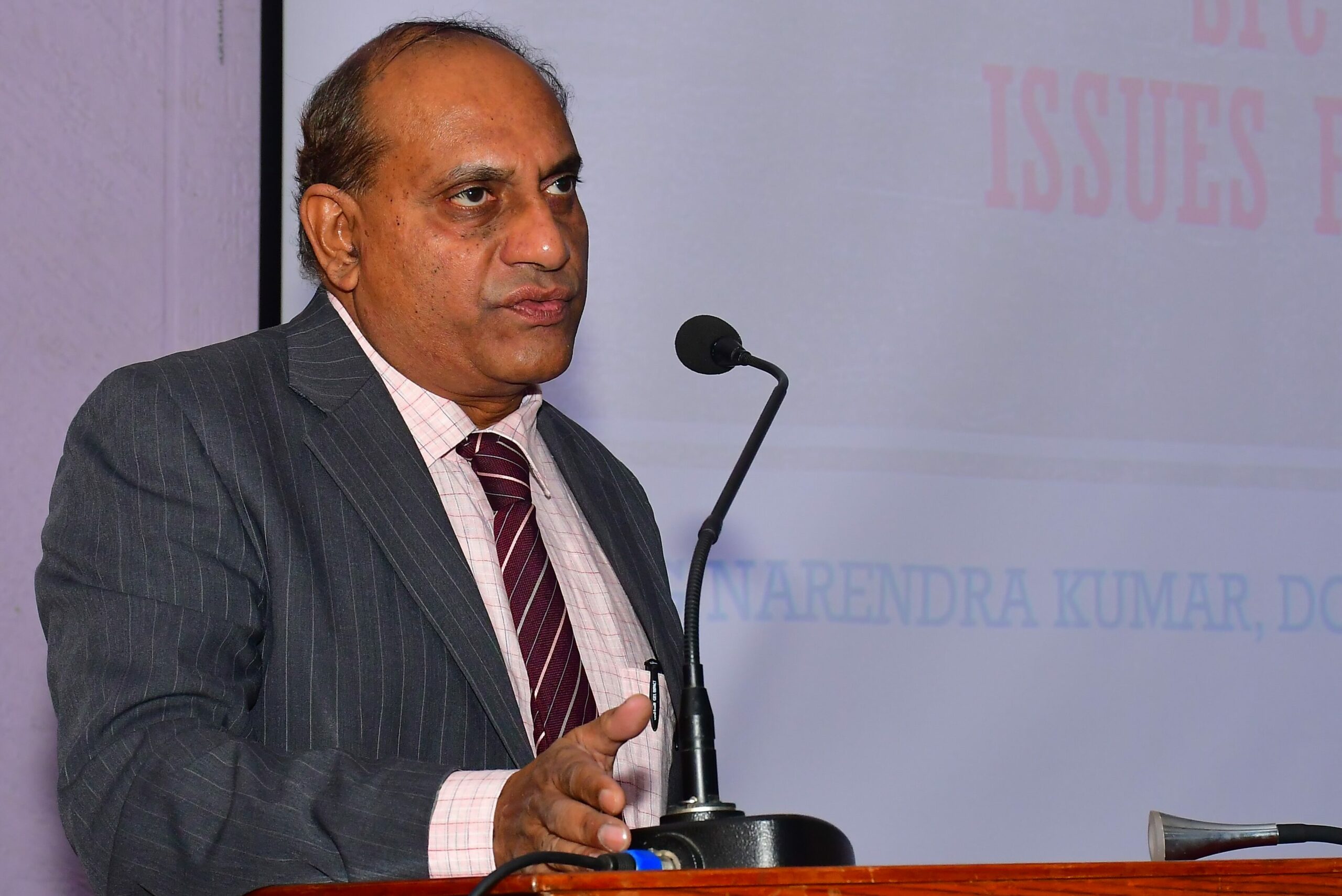
- How to work out a Divisible Pool of the State Revenues – Determination of State tax Revenues and the collection charges to arrive at the “net proceeds” and the principles for distribution.
- How to assess to requirements of PRIs – Review and forecast of (a) Revenues based on past trends and revenue potential (b) Expenditure on a normative basis
- How to develop a comprehensive system for compilation of data on Panchayats’ finances- To enable SFCs to assess the income and expenditure of the Panchayats
- How to work out the devolution formula – To rectify the vertical gap, i.e. the mismatch between expenditure responsibilities and potential OSR and rectify the horizontal gap to equalise the inter-jurisdictional disparities
- How to professionalise SFCs- To design fiscal transfers to Panchayats to enhance their fiscal capacity and functional autonomy
The DG also expected that the Conclave would suggest a broad roadmap and strategy towards bringing excellence to SFCs’ functioning in the future.
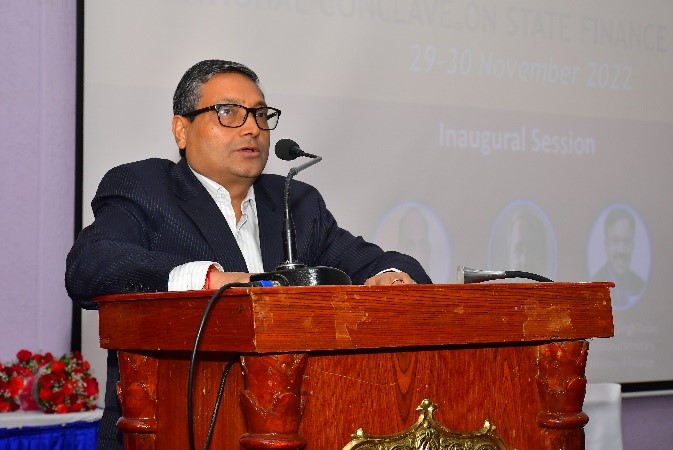
Dr. Chandra Shekhar Kumar, Additional Secretary, MoPR explained the background and objectives of the Conclave. He pointed out that finance is the lifeblood of the functioning of any organisation, and the SFC is vital in translating the mandate of the Constitution of India to make the Panchayats self-governing institutions. He said only nine States had constituted the 6th State Finance Commission (SFC), and another seven had established the 5th State Finance Commission. There is a considerable variation in the functioning of SFCs and their recommendations. He said though taxation powers are given to Panchayats in state Panchayati Raj Acts, rules are not framed in many States, and as a result, Panchayats are not able to mobilise own source revenues.
In his inaugural address, Dr. Ashok Lahiri, a Member of the 15th Central Finance Commission (CFC), pointed out that these local governments touch the people at the local level by providing them with basic services. “We see the democracy in action only at the Gram Sabha. There is a need to strengthen the Panchayats for mobilising internal revenues for efficient service delivery,” he said. He reminded that the 15th Central Finance Commission has recommended enhancing the professional tax from the existing limit of Rs 2500 to Rs 18,000 per annum and that the Panchayats should mandatorily collect property tax. These need to be considered by the States.
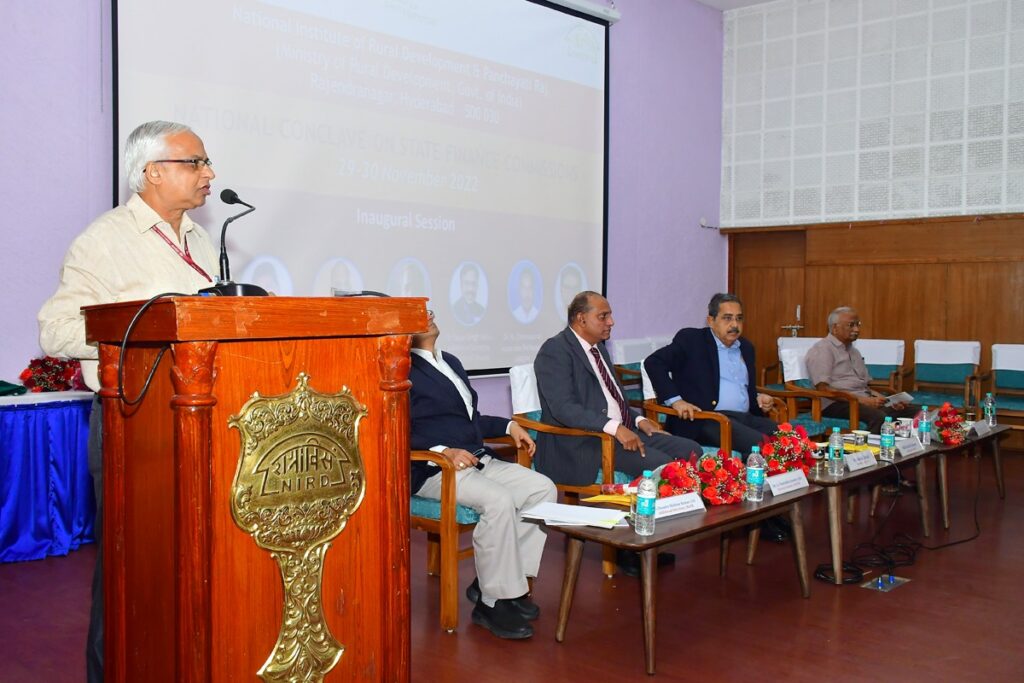
Shri Sunil Kumar, Secretary, MoPR explained the role of CFC and SFCs in strengthening Panchayati Raj Institutions. He said MoPR has drawn up a broad vision for the socio and economic transformation of rural areas through eGramSwaraj, SVAMITVA and Audit online, etc.
“Therefore, there is an urgent need to align the functioning of SFCs to maximise their contribution to strengthening the finances of Panchayats,” he said and expressed hope that the conclave would deliberate on redefining the role and functioning of SFC in a collaborative and consultative manner.
First Sub-Committee of Parliament on Official Language Visits Hyderabad
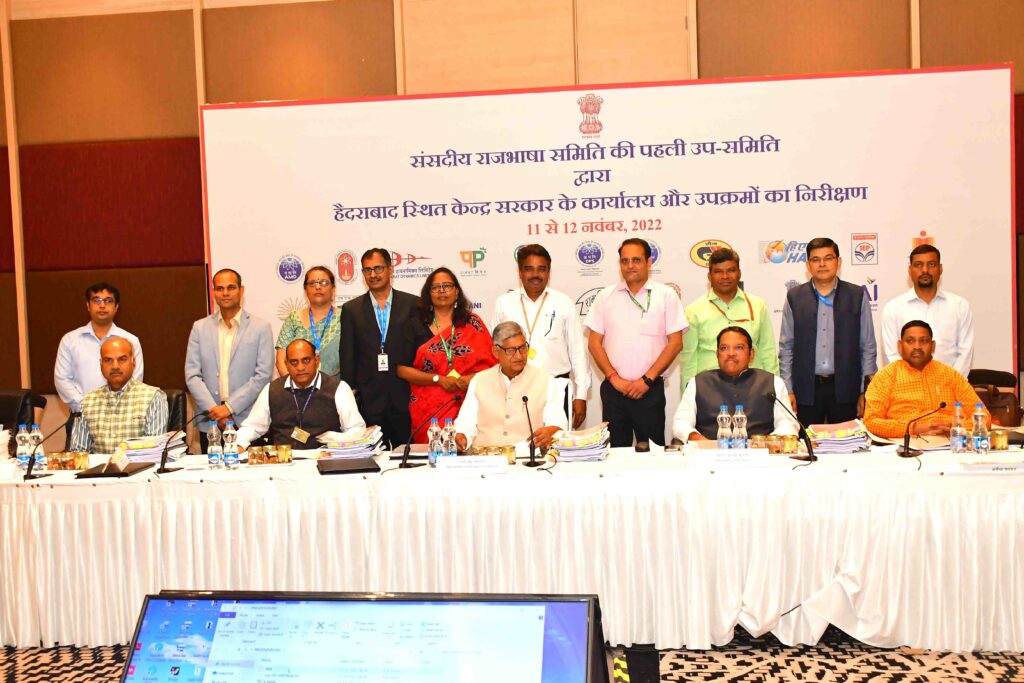
The first Sub-Committee of the Parliament on Official Language visited Hyderabad on 11th November, 2022 to review the progressive use of Official language in National Institute of Rural Development and Panchayati Raj, Hyderabad.
Dr. G. Narendra Kumar, IAS, Director General, NIRDPR welcomed Shri Ram Chander Jangra, Member of Parliament & Chairman, Parliamentary Committee on Official Language, other MPs and office-bearers.
Besides Director General, officials including Shri Sashi Bhushan, ICAS, Deputy Director General, Shri Manik Chandra Pandit, Director (Ministry of Rural Development), Dr. Jyothis Sathyapalan, Prof. and Head, CDC, Ms. Pushpa Lata, Deputy Director (Ministry of Rural Development), Shri Rajesh Kumar, Asst. Director (Ministry of Rural Development), Shri Manoj Kumar, Assistant Registrar (E), and Mrs. Anita Pandey, Assistant Director (OL) were present during the inspection.
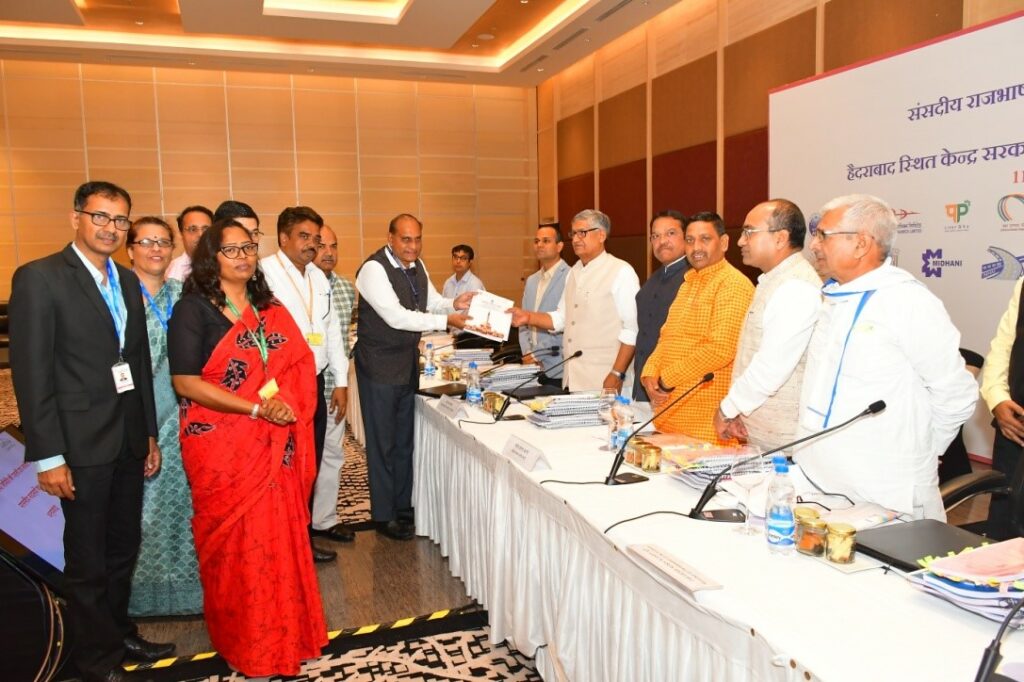
On this occasion, Hindi works of the Institute were exhibited. In compliance with Section 3(3) of the Official Language Act, 1963, Hindi publications, files, bilingual forms, training materials, translation work letters, Gazette notification letters, personal files, bilingual rubber stamps, etc., were on display. The Chairman and the committee members visited the exhibition and praised the works displayed.
International Training Programme on Good Governance for the Management of Rural Development Programmes
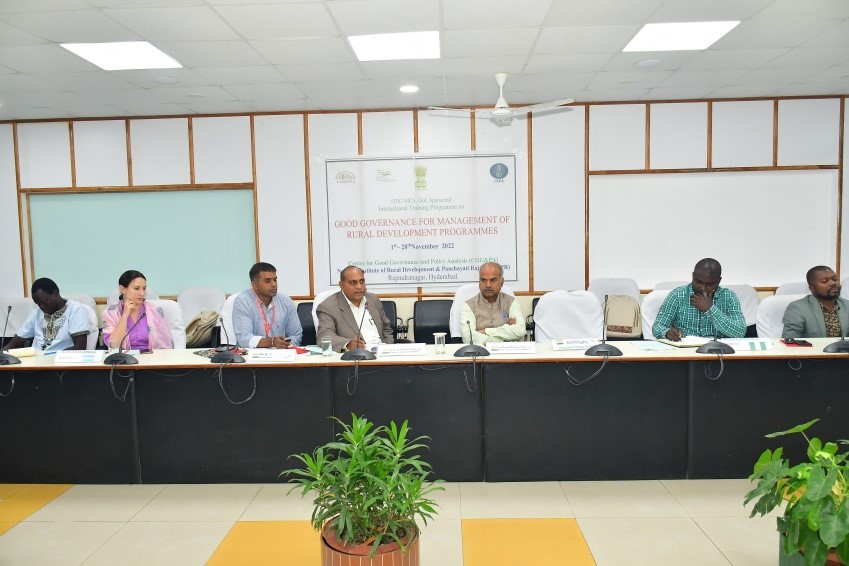
The 5th International training programme on ‘Good Governance for Management of Rural Development Programmes’ was organised by the Centre for Good Governance and Policy Analysis (CGGPA), NIRDPR, from 1st – 28th November 2022. A total of 22 international delegates from 16 developing countries participated in the programme. The participants were rural development, decentralisation and agricultural professionals from ITEC countries and were sponsored by the Ministry of External Affairs, Government of India.
The international programme aims at addressing the following Objectives:
- To explain the context of governance in theory and practice
- To appreciate the ethics and values of governance
- To teach international perspectives of good governance
- To give them an experience in the good practices of good governance
- To impart the participants with knowledge about rural development programmes in India
- To focus on concepts and operational issues in decentralisation and good governance
- To highlight local governance models, efforts in accelerating good governance initiatives and emphasis on capacity building
- To visit and interact with successful local bodies representatives, officials, model panchayats/institutes and community-based organisations
- To prepare a plan of action.
The training programme covered modules like Good Governance- International disciplinary transformative concepts; Good Governance- A significant transformative in contemporary society; Good governance-Grassroots initiatives and best practices; Leadership governance as an empirical factor of state performance; Concepts, Approaches, Rationale and tools of social accountability; Application of transparency and accountability tools & techniques; Flagship programmes – role of governance in effective implementation and Issues and concerns for effective management of RD programmes.
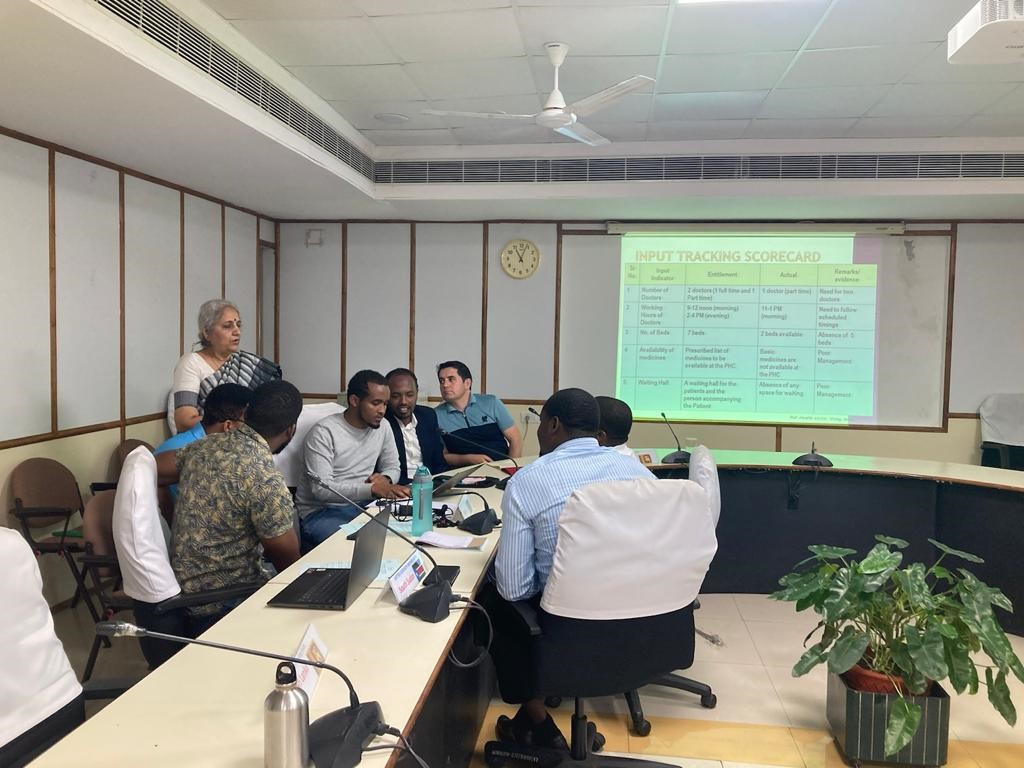
Dr. G. Narendra Kumar, IAS, Director General, NIRDPR welcomed the participants and reflected on his experiences in good governance. During the inaugural address in an interactive session with the participants, he noted that good governance is a continuous process. The DG briefly spoke on the topic ‘Accountable & Transparent Service Delivery for Good Governance in Rural Development Management – Knowledge and Experience sharing.’ He highlighted that the sessions of the course were initiated to help the participants in their respective areas of job. Also, he explained how the flagship rural development programmes impacted the rural livelihoods in India.
Shri Shashi Bhushan, ICAS, Deputy Director General, NIRDPR, in his opening remarks, welcomed the participants and highlighted a few ongoing rural development programmes and policies.
The programme was designed to cover topics, including Good Governance -International Perspectives, Sustainable Development Goals (SDGs) & Localisation Process – Indian Perceptive, Empowering Rural Women through National Rural Livelihoods Mission, Good Governance, E-Governance & M-Governance, Skilling The Youth India – Deen Dayal Upadhyaya Grameen Kaushalya Yojana, Livelihoods in Rural Development – Best Practices, Gender Concerns in Service Delivery, Efficient, Effective Service Delivery through Democratic Good Governance Initiatives, Role of PRIs in Practising Good Governance for Rural Development, Accountable & Transparent in Service Delivery for Good Governance in Rural Development Management and Appropriate Technologies for Rural Development, etc.
To strengthen the participants’ knowledge of good governance practice, lectures on different social accountability tools like Community Score Cards (CSC), Citizen Report Cards (CRC), Social Audits, and PRA were organised. Besides topics such as PRA: a tool for effective local governance management strategies for rural development and Right To Information Act (RTI) – Tool for Accountability & Transparency – Discussion on RTI successful case studies, effective watershed approaches for Rural Development, Appropriate Technologies for Rural Development, Gram Panchayat Development Plan (GPDP), Saansad Adarsh Gram Yojana (SAGY) – Stakeholder led convergence model rural development, Monitoring Rural Development flagship programmes through GIS&ICT and Geoinformation technology in Rural development: NIRDPR Experiences, Entrepreneurship for effective rural development and group discussions and exercise on ‘Community driven self-governed model Village – A Case of Gangadevipalli’ were covered.
The role of ICT and IT in Governance was also covered in the training programme, mainly focusing on e-Governance in India: Concepts, Initiatives and Success stories; IT Agriculture-Rural development; Geoinformatics technology in rural development; Case study of Lokavani & IT for SHG – Case studies discussions; and Improving Agriculture Governance system – Role of Farmers Producer Organisations (FPO) – Panel Discussion and emerging issues for Rural Development.
This was followed by lectures by eminent persons on flagship programmes like IWMP, MGNREGA, DDU-GKY, Aajeevika – National Rural Livelihoods Mission (NRLM), Swachh Bharat etc.
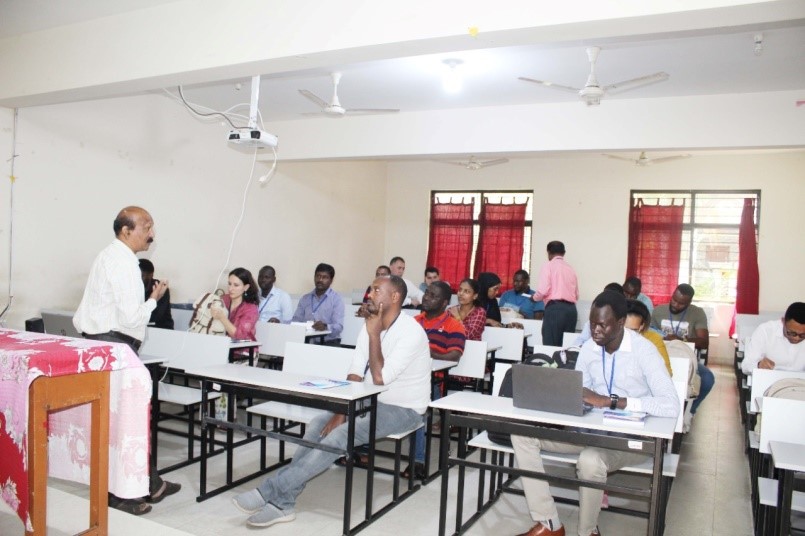
The participants were taken to Karnataka for a study tour, and they visited Rural Development and Self Employment Training Institute (RUDSETI) Arasinakunte, Bangalore Rural, to understand the initiatives of the Ministry of Rural Development as well as NIRDPR in promoting skill development and gender entrepreneurship. Participants visited Ramanagara district Zilla Panchayat CEO to learn how effectively Panchayati Raj Institutes (PRI) are delivering their services, especially focusing on rural India and different e-governance initiatives. Team also visited Manjanayakan Halli, Ramangara taluk & district. In Manjanayakan Halli village, participants interacted with village Gram Panchayats members and engaged in information sharing and also took a walk to see development within the community. The team also interacted with the SHG members to learn about their activities and the sustainable practices they adopted to run the SHG activities.
The team also observed development activities like solid waste management by the GP, purified drinking water supply, e-library, road construction, water and sanitation facilities, and housing projects run through the panchayat institutions and met the council members as well as the President of the village. They visited Mysuru City Corporation to see their development activities with regard to good governance, e-governance, e-initiatives and best solid waste management practice. Team also visited the Department of e-Governance, Government of Karnataka, where the Director of e-Governance, GoK interacted with participants and briefly explained their innovative e-governance model called Seva Sindhu.
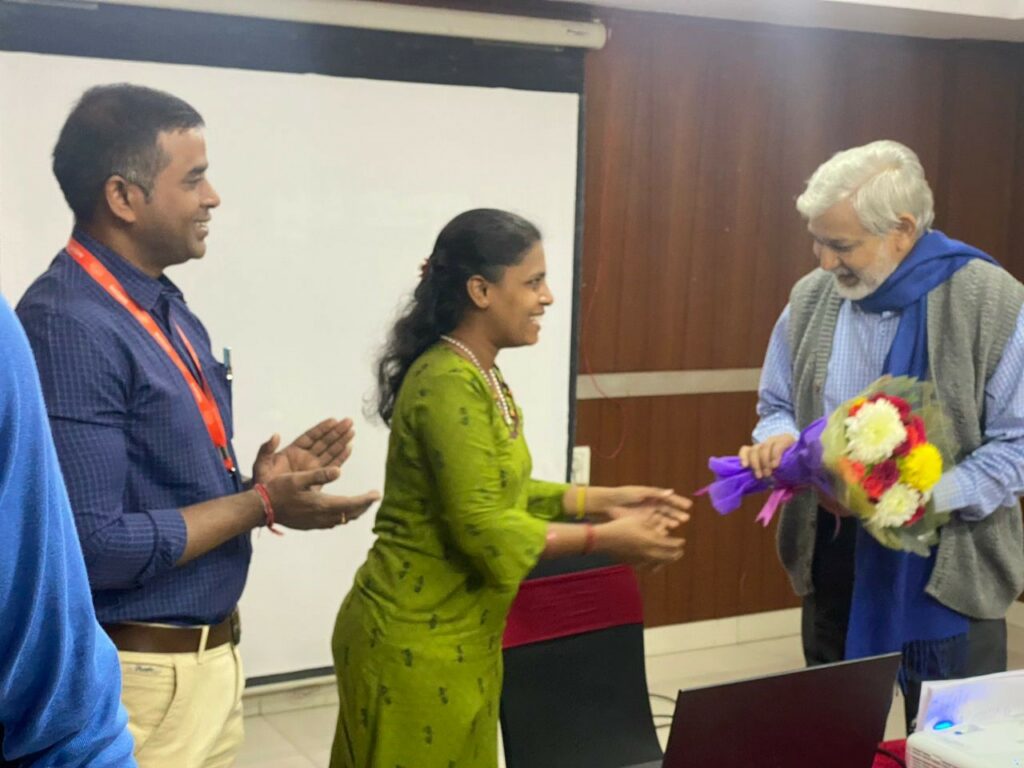
During this study tour, Dr. Ajai Kumar Singh, IPS (Rtd.), DGP& IGP, Government of Karnataka delivered a guest lecture on efficient, effective service delivery through democratic good governance initiatives – knowledge & experiences sharing. The key aspect of this session was the description of a civil servant, and Dr. Ajai Kumar Singh explained the difference between a public servant and a government servant.
During the valedictory, Dr. G. Narendra Kumar, IAS, Director General of NIRDPR, greeted and thanked the participants for attending this course and thanked the respective departments of 16 countries for nominating them for this course. Stating that such international training programmes would strengthen the relationship between NIRDPR and the rest of the world and pave the way for effective and time-bound implementation of rural development programmes, he urged the participants to use learnings from the training programme to lift the rural poor from poverty.
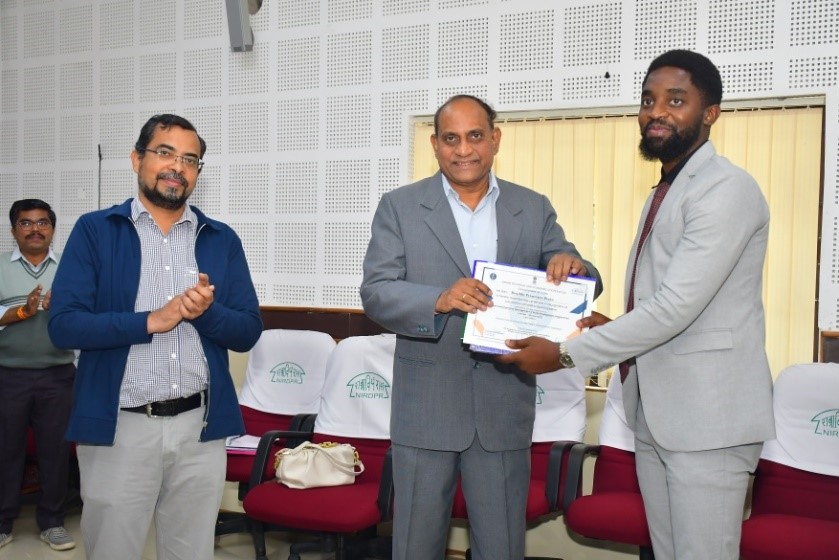
The participants came up with the following consolidated plan of action based on learnings from the one-month training programme:
- To promote good governance initiatives at local level platforms like inter-governmental meetings and integrated development plan sessions
- Information sharing knowledge with colleagues and other stakeholders
- To also evaluate what is possible and not possible for both the department/institution and the country as a whole
- To establish networks and liaise with other government and private institutions or officials that are involved in good governance and rural development for partnerships. To lay the groundwork for possible research topics in areas such as good governance, e-Governance and Mobile governance, Citizen Report Card and Community Score Card, and Social Audit Practices.
Views of participants:
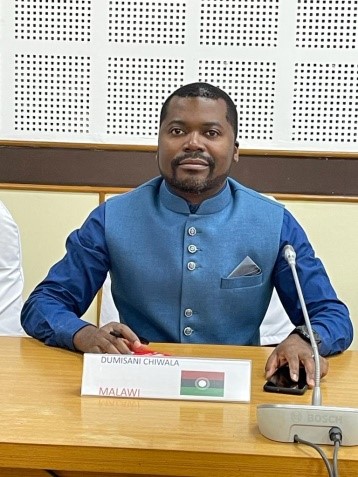
My enrolment with the National Institute of Rural Development and Panchayat Raj (NIRDPR) has been an eye-opener as it has helped me understand what good governance for managing rural development is all about. It has also equipped me with practical skills on the same through the learning of different schemes that are being implemented by the Indian government. The course on good governance for the management of rural development programmes has proved vital for my personal development, family, district, and national level. For progressive development, there is a need for one to be equipped with skills and practical experience in good governance. In the course, I have learnt so many positive things happening in India.
– Dumisani Chiwala, Malawi

My experience in India was amazing. From technological advancement, governance systems, rural development projects, and women empowerment to food and culture, there has been a lot to learn, which I did. The adoption of technology in governance, agriculture and development is working well for India, and we will emulate that and work towards similar success.
– Ms Yasmin M. Adan, Kenya
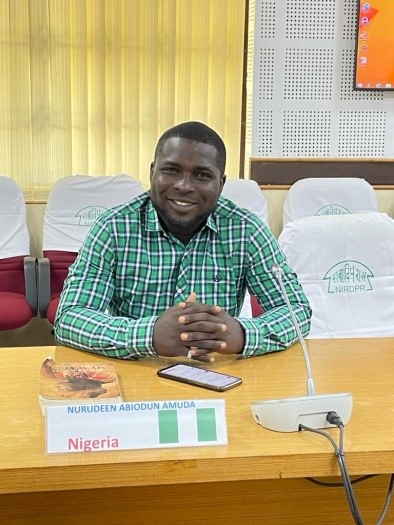
Developmental programmes are meant to improve the standard of living of the citizens. India has demonstrated this with many ambitious projects done to lift the citizens, especially rural people, out of poverty and ensure they are useful. It is imperative for developing nations to study the Indian developmental model and apply it for a prosperous society devoid of indexes that point to grave backwardness. A country that fails to propel its prosperity in the right direction sets itself up for failure; thus, leaders must roll up their sleeves and get locked in the epoch-taking decisions that can turn around their fortunes and set a beacon of hope for their citizens. Knowledge is acquired to make societies better; this will go a long way in adjudicating what has been learnt here to our communities, institutions and policymakers.
– Mr. Nurudeen Abiodun Amuda, Nigeria
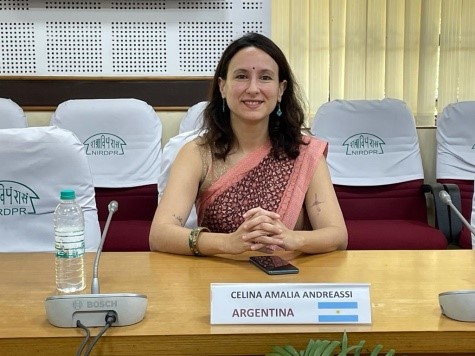
Throughout 28 days, we were able to acquire incredible amounts of information about India’s path towards rural development and the ideas that underline it. We learned about this through lectures, videos, exposure visits, debates, and exercises. Much of the lessons learned and the experiences shared will continue to feed my process of growth, both professionally and personally. These last four weeks of intensive training left a lot of ideas and experiences to be processed. One of the main learnings I got from this was that development is not something that can be copied and pasted and that it is a process that involves the entire community, not single individuals. Therefore, the first conclusion I can draw when considering the plan of action is that these lessons are not something any individual can just grab, take home, and implement, expecting to replicate the results. However, on the micro level on which individuals act, and in my case, in particular, working as a project officer in a rural development programme, I intend to do the following on my return to Argentina.
– Celina Andreassi, Argentina
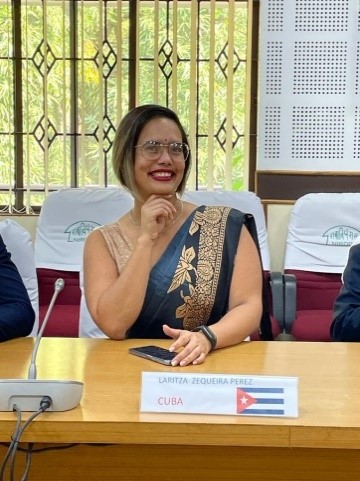
It was possible to understand that good governance goes beyond exercising power, making decisions and issuing laws; it is a process that must achieve the integration of the state, civil society and the market, with the aim of promoting favourable political, legal and economic environment, mobilising peoples’ participation and creating opportunities for people.
The Social Accountability Tools proved to be essential tools in the implementation, evaluation and monitoring to achieve and maintain good governance in rural communities. They are important for achieving inclusion, increasing transparency and decreasing corruption. In all the programmes presented, there is correspondence with the Sustainable Development Goals to be met by 2030, which is a challenge for many countries today, including Cuba.
– Laritza Zequeira Perez, Cuba
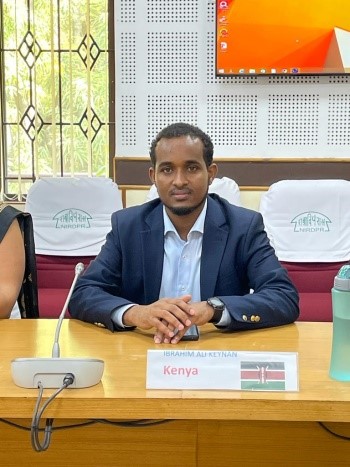
The development approaches of India and the changing narrative of underdevelopment in rural settings shift the goalpost of responsivity. Essentially, when thousands of schemes are designed to serve you at your doorstep, individual citizen responsibility sets in. However, it should be noted that for the vulnerable in the midst of this marathon to eradicate poverty, the special lens needs to get firmer.
As we witness India change the narrative of development, the nations like Kenya in the global south and, more significantly, sub-Saharan Africa have a lot to borrow from India that are ready to lend a helping hand in sharing knowledge and best practices in the practical sense.
– Ibrahim A. Keynan, Kenya
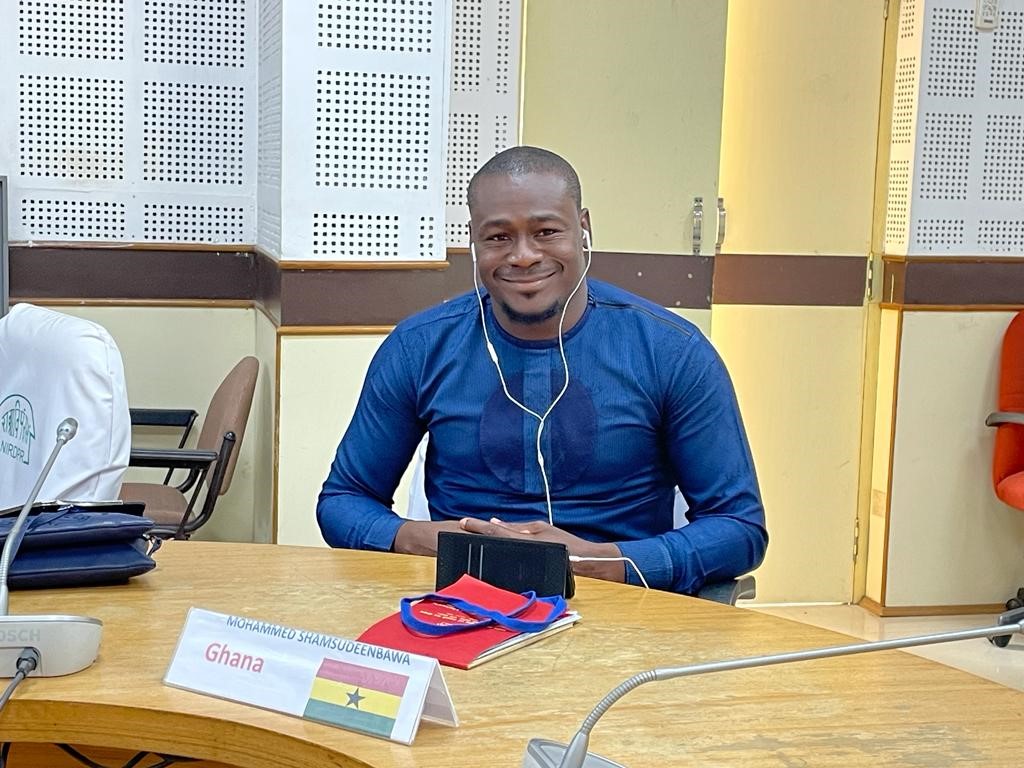
Impactful and relevant lecture sessions were presented by vastly experienced Resource Persons from various institutes and government agencies on aspects of good governance. The course design touched on fundamental and critical issues that most developing nations, including my country Ghana, are engulfed with. Issues of citizen empowerment, equity and fairness, accountability, transparency, responsiveness, effectiveness and efficiency in service delivery, low agricultural productivity, inadequate industry capabilities, inappropriate technological advancement, dependence on donor agencies and developed nations for funds, climate change resulting from bio-diversity issues such as deforestation among other challenges still hinder development.
– Mohammed Shamsudeen Bawa, Ghana
Dr. K. Prabhakar, Course Director & Assistant Professor, Centre for Good Governance & Policy Analysis (CGGPA), Dr. P. P. Sahu, Associate Professor & Head (i/c), CGGPA and Shri K. Rajeshwar, Assistant Professor, CGGPA organised the training programme.
Meeting of Social and Behaviour Change Communication Coordination Committee at NIRDPR
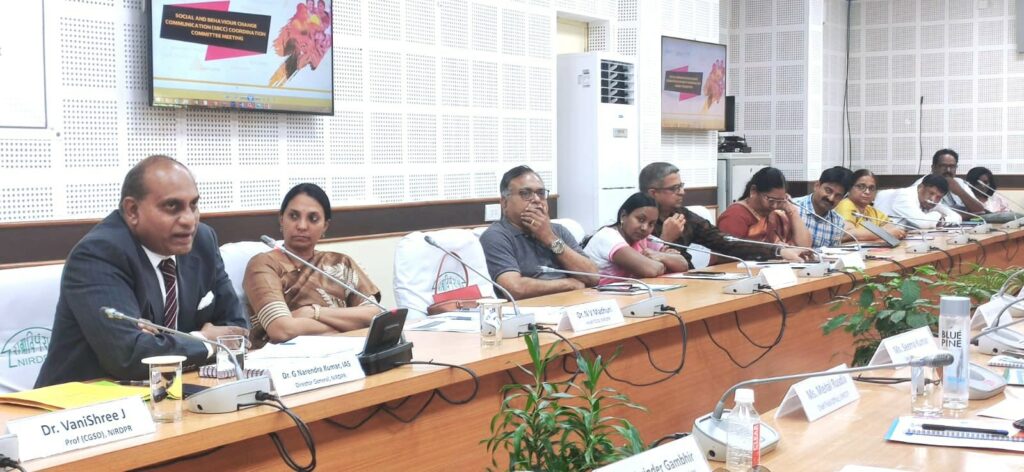
The Communication Resource Unit under the aegis of Centre for Gender Studies & Development, National Institute of Rural Development and Panchayati Raj organised a one-day SBCC Core Group Meeting on 14th November, 2022 at NIRDPR, Hyderabad campus.
The SBCC Core Group was constituted by CRU-NIRDPR in 2017 with the key line departments from the State governments of Andhra Pradesh, Karnataka and Telangana as well as other actors engaged in various initiatives of Social and Behavior Change.
The purpose of this initiative is to provide a common platform to share the best and key learnings from various SBCC programmes and arrive at a mechanism to deliver need-based SBCC technical assistance in the areas of health, nutrition, WASH, child protection, education, emergencies and gender in a collaborative and convergent manner.
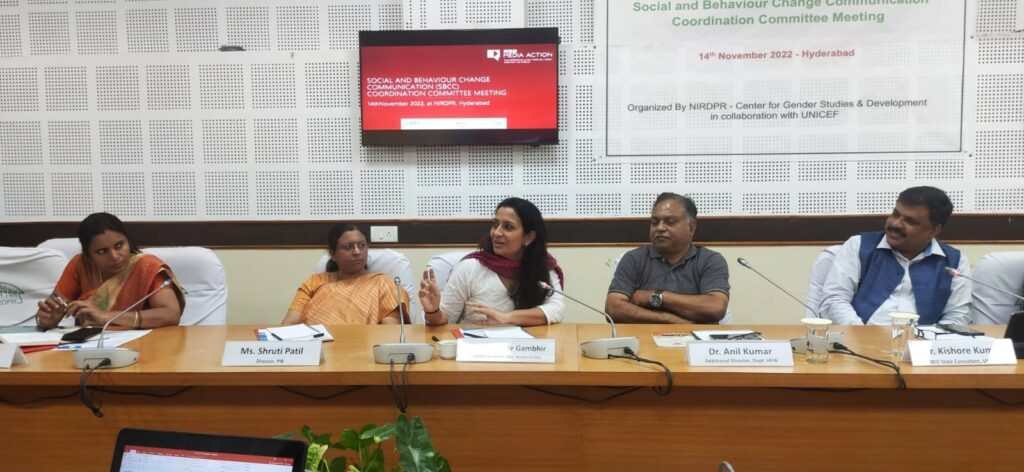
Dr. G. Narendra Kumar, IAS, Director General, NIRDPR emphasised the importance of SBCC to improve the Human Development Indicators and a life cycle approach for sustaining SBCC strategies. “There is a need to analyse the gaps and challenges in existing interventions and bring about effective integration of SBCC into all the development programmes,” he added.
Ms. Meital Rusdia, Chief Field Office present on the occasion stressed the need for inter-sectoral collaboration along with CSOs, private sector, media and others. “As UNICEF, we would like to advocate for behavioural assessments and tracking, social listening platforms, user/human-centred design, feedback and accountability mechanisms, participation in local governance, and strengthening sectoral systems while designing SBC programmes that are rights-based, people-centred and systems-oriented,” Ms. Rusdia expressed further.
Ms. Shruti Patil, IIS, Director, Press Information Bureau, Hyderabad spoke about the ‘Role of Government media agencies in message dissemination for SBCC’ and Ms. Bhavana, IAS, Additional Director, Department of Gram Secretariats Ward Secretariats, GoAP discussed the SBC strategies used for the involvement of Village Ward Volunteers in development programmes.
During the SBCC Core Group meeting, panel discussions were held on three major themes:
Theme 1: SBCC in Health Programmes– Officials from the Health Departments of Andhra Pradesh, Karnataka and Telangana and a representative from BBC Media Action joined this panel discussion and shared their insights on the scope, opportunities and challenges for SBCC in health programmes. It was noted that most of the Health outcomes are behavioural in nature and linked to social norms. The panellists advised that as multiple departments are approaching different members of the same family with multiple services, a common comprehensive State-level SBCC action plan may be developed.
Theme 2: Engaging Volunteers for SBCC: Bharat Dekho and The Ugly Indians presented about their engagement in working with volunteers alongside Andhra University and spoke about NSS and Sri Sathya Sai Seva Organisation (SSSSO) who presented on how the volunteers from a faith-based network can contribute to SBC. This session highlighted the need to promote community dialogue, community ownership and collective action.
Theme 3: Leveraging Technologies for SBCC: Unique technology-driven initiatives – Tele Swabhimaan project of MEPMA, Telangana, School Health Programme from Andhra Pradesh and Noora Health’s Care Companion Programme were presented along with Hello Didi of UNICEF and PHFI Lucknow. The discussion shed light on the need to consider the social context of the beneficiary and influence the behaviours of family members, peers and the overall ecosystem for achieving the desired changes.
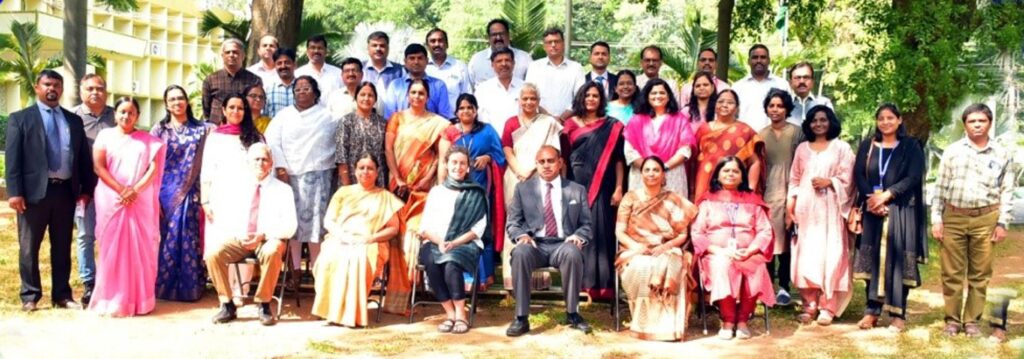
The meeting was attended by senior officials from the Departments of Health & Family Welfare, Women Development & Child Welfare, School Education, MEPMA, Tribal Welfare, PR & RD, Rural Water Supply & Sanitation, MA& UD, from the states of Telangana, Andhra Pradesh and Karnataka. The meeting is organised by Dr. J. Vanishree, Assistant Professor, CGSD and Dr. N. V. Madhuri, Head, CGSD & CRU, NIRDPR.
Training cum Exposure Visit of Elected Representatives from PRIs of Jammu & Kashmir

The Centre for Good Governance and Policy Analysis (CGGPA), NIRDPR organised a training cum exposure visit of the Elected Representatives of the PRIs of Jammu & Kashmir,’ from 14th -18th November, 2022 and 21st -25th November, 2022 in two batches.
The programme was sponsored by the Government of Jammu & Kashmir. A total of 34 delegates participated in the Batch-1 programme consisting of District Development Council (DDC) Members and Block Development Council (BDC) Chairman/Chairperson of PRIs representing 12 districts of the UT of Jammu & Kashmir accompanied by three nodal officers. In Batch-2, 25 elected representatives from 16 districts DDC members and BDC chairman/chairpersons participated. The programme aimed to build the capacity of the elected representatives on the roles and responsibilities of PRIs, Provisions of the PRI Act and Orientation in the Functioning of PRIs in the state of Telangana.
The first batch of the programme was inaugurated by Dr. Ravindra Gavali, School Head and the second batch was inaugurated by Dr. P. P. Sahu, Centre Head, CGGPA. In the inaugural speech, he highlighted the significance of PRIs in UT of Jammu and Kashmir and emphasised the role of elected representatives in biodiversity governance. The programme director welcomed the participants and briefed them objectives of this programme.
In addition to this, the programme covered important contents like roles and responsibilities of elected representatives, an overview of the Panchayati Raj Act of UT of Jammu and Kashmir, effective implementation of MGNREGA, poverty-free village and enhancement of Livelihoods in GPs, Localisation of Sustainable Development Goals (LSDGs) for the formulation of GPDP, Good Governance, e-Gram Swaraj and case presentations.

The training methods of the course were delivered through a participatory learning process. The sessions were dynamic and included introductory presentations, interactive sessions, lectures, documentary presentations, brainstorming, fieldwork and practical exercises, etc. Apart from classroom inputs, the two batches of participants were taken to the field visits showcasing the best practices and interaction with the officials and elected representatives of PRIs at the district, block and GP levels. Best practices on rural development schemes such as MGNREGA, Haritha Haram, Palle Pragathi with all its interventions with a special focus on Vaikuntadhamam, Double Bedroom Housing Scheme in Pullur and Raghavapur GPs in Siddipet District and Kasireddyguda GP in Shadnagar and Lashkarguda GP in Hayathnagar.
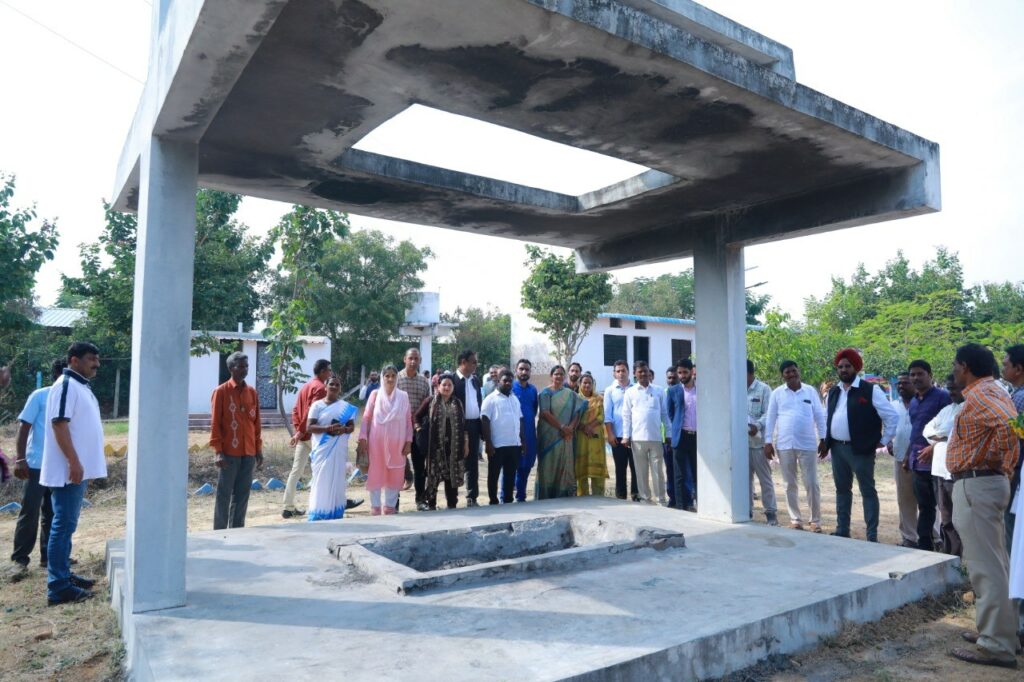
At the end of the programme, participants opined that the programme design, contents, programme deliveries and hospitality arrangements were impressive. The two batches of the training programmes were coordinated by Shri K. Rajeshwar, Assistant Professor, Centre for Good Governance and Policy Analysis (CGGPA). The feedback of the participants was taken in TMP, who gave an overall of 92 per cent.
CGARD, NIRDPR Organises Workshop on eDPR Application
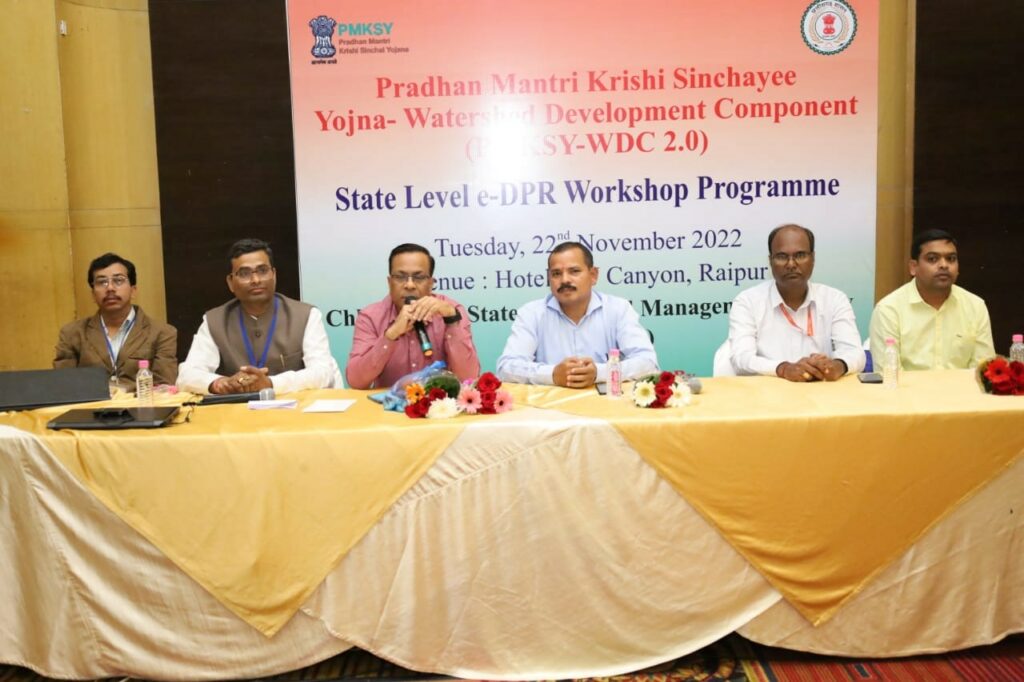
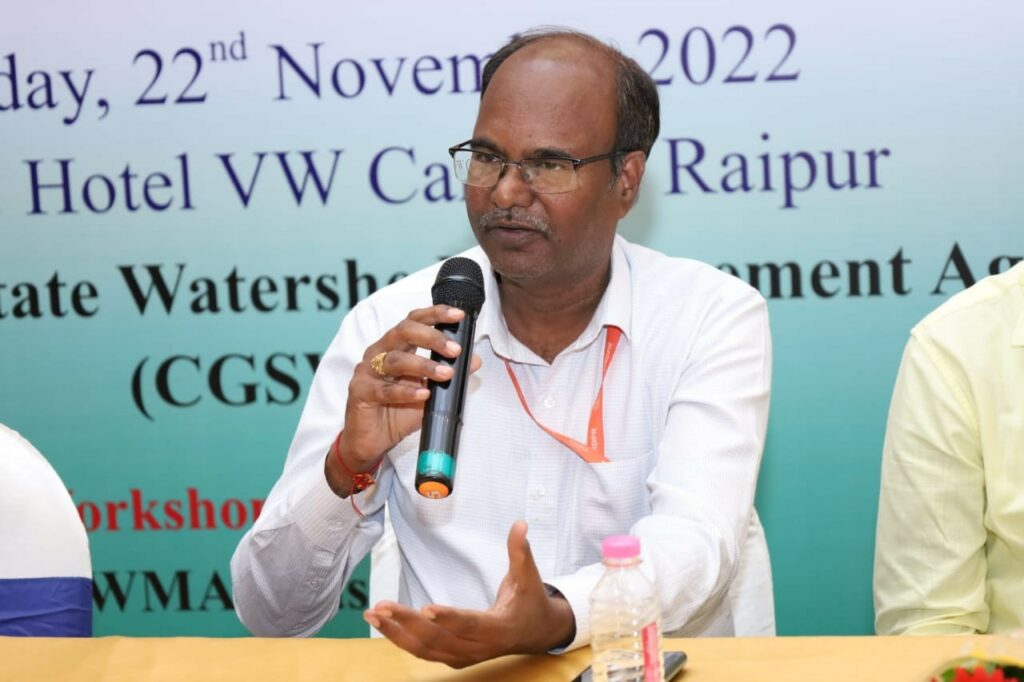
The Centre for Geoinformatics Applications in Rural Development (CGARD), National Institute of Rural Development and Panchayati Raj organised a one-day State-level workshop on ‘eDPR Application for the State of Chhattisgarh on 22nd November, 2022 in Raipur.
Mr. R. L. Khare, Joint Director of Agriculture welcomed the Chief Guests. Later, the guests performed the lighting of the lamp ceremony, and the workshop was inaugurated by Mr. Kapil Dev Deepak, Joint Commissioner, State Level Nodal Agency, Chhattisgarh.
Dr. N.S.R. Prasad, Assistant Professor, CGARD, NIRDPR and Programme Director highlighted the one-day workshop agenda and gave an orientation on eDPR application for preparation of uniform watershed detailed project reports under WDC – PMKSY 2.0. Mr. Praveen, Data Processing Assistant, CICT, NIRDPR demonostraed the eDPR application.
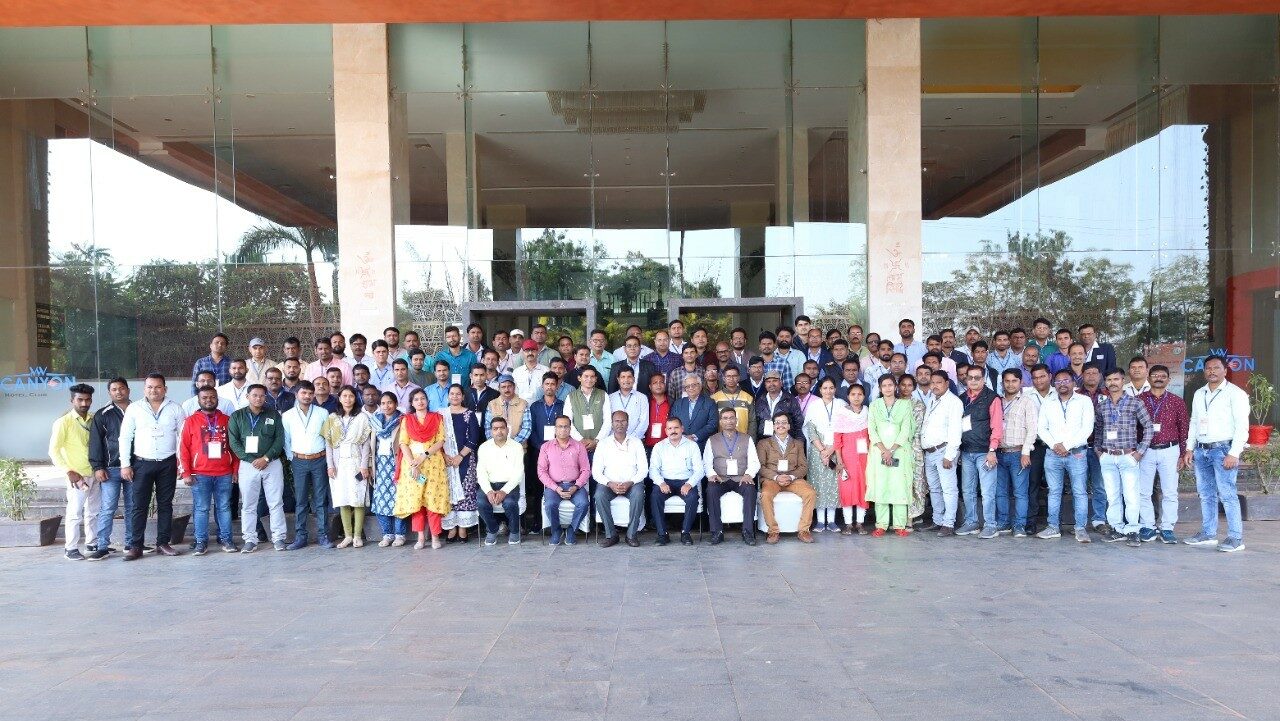
A total of 135 officials at the level of SLNA, Watershed Cell cum Data Centre (WCDC) and Project Implementing Agency (PIA) of the Watershed Department attended the workshop. Suggestions from officials were taken to further customise to make it a better web application.
The workshop was organised by Mr. Kapil Dev Deepak, Joint Commissioner, Chhattisgarh State Water Management Agency, Chhattisgarh. The programme was coordinated by Dr. N. S. R. Prasad, Assistant Professor, Course Director, CGARD, NIRDPR.
NIRDPR Observes Constitution Day; Organises Lecture on Constitution’s Blueprint for National Development
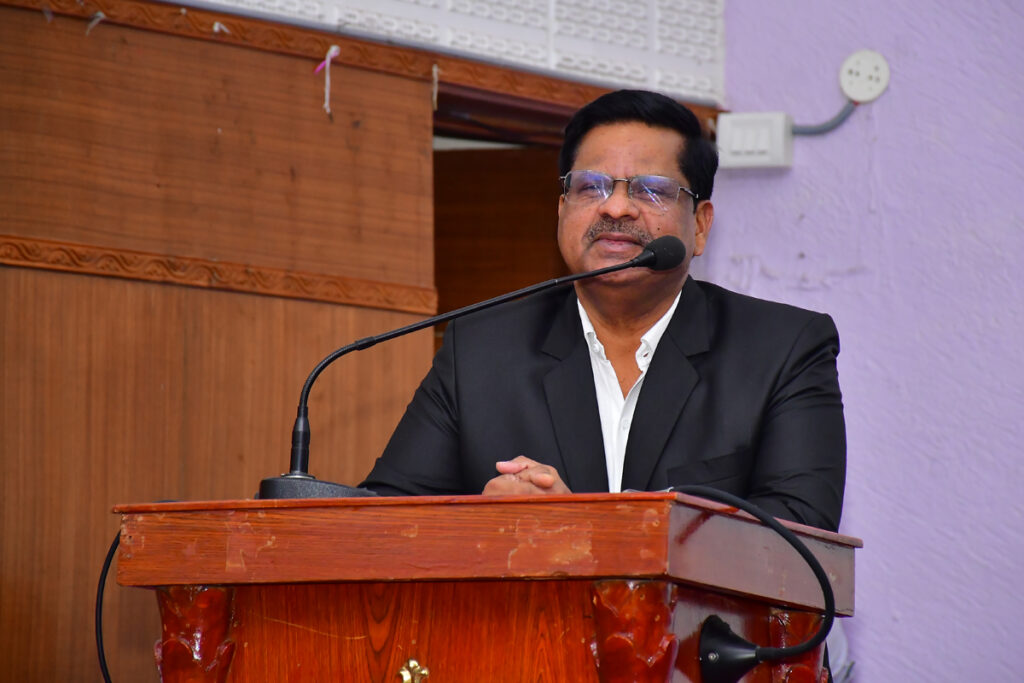
Every year 26th of November, 2022 is celebrated as Constitution Day, which is also called National Law Day. It was on this day in 1949 the Indian Constitution was adopted by the Constituent Assembly, which came to effect on 26th January, 1950.
The National Institute of Rural Development and Panchayati Raj celebrated Constitution Day on 28th November, 2022. Dr. Balakista Reddy, Vice Chancellor and Registrar, National Academy of Legal Studies and Research, Hyderabad was the Chief Guest of the event, who delivered a lecture on ‘Constitution’s Blueprint for National Development.’
Dr. G. Narendra Kumar, IAS, Director General, NIRDPR welcomed the Chief Guest with a bouquet and addressed the audience. The Constitution Day pledge was administered by Shri Manoj Kumar, Assistant Registrar (E), NIRDPR. This was followed by a lecture by Dr. Balakista Reddy, Vice Chancellor and Registrar, National Academy of Legal Studies and Research, Hyderabad on the significance of the Indian Constitution.
Dr. Balakista Reddy started his lecture with the statement that law is dynamic, an enforceable rule and recognisable. Citing that the Constitution of India is the largest written one in the world that contains 15 Schedules, and 448 Articles, he said the drafting works lasted two years, 11 months and 18 days. He spoke at length about the salient features of the Indian Constitution, such as its Preamble, Schedules, Articles, Directive Principles to the State Policy, Fundamental Rights, and Fundamental Duties. Dr. Reddy explained that the Indian Constitution is federal yet unitary, rigid yet flexible and added that the law is going through changes like other sectors because of digitisation. Throwing light on the prominence of the 73rd and 74th amendments, he suggested that NIRPR and NALSAR can work together to address the issues of the rural development sector.
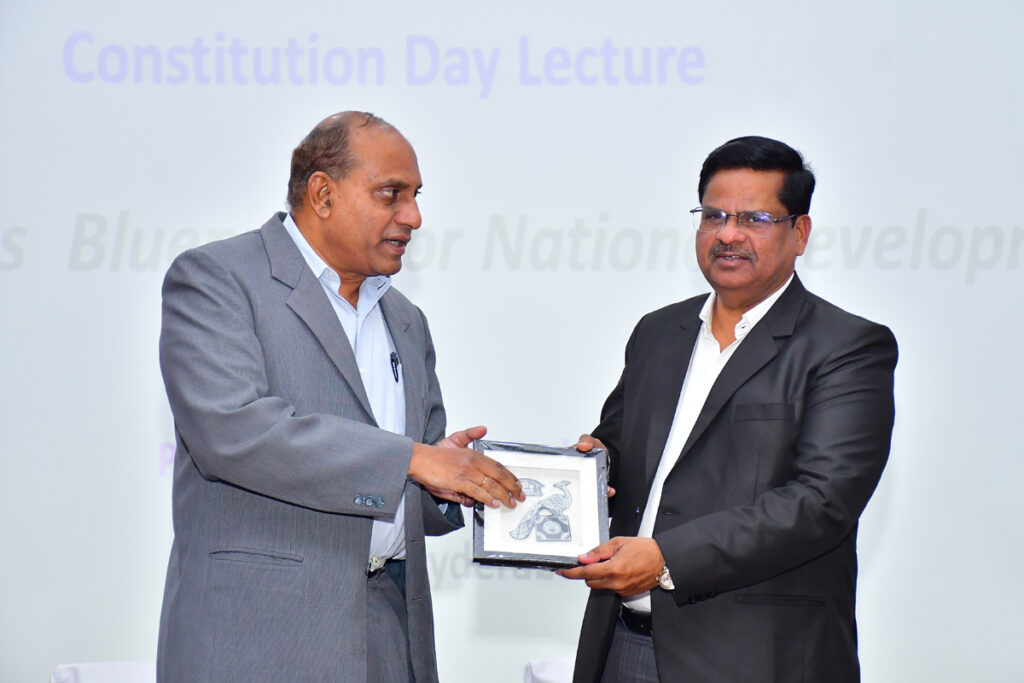
Dr. G. Narendra Kumar, IAS, Director General, NIRDPR honoured the guest with a memento. Dr. M. Srikanth, Registrar & Director (Admin.), NIRDPR proposed the vote of thanks.
NIRDPR Observes Vigilance Awareness Week
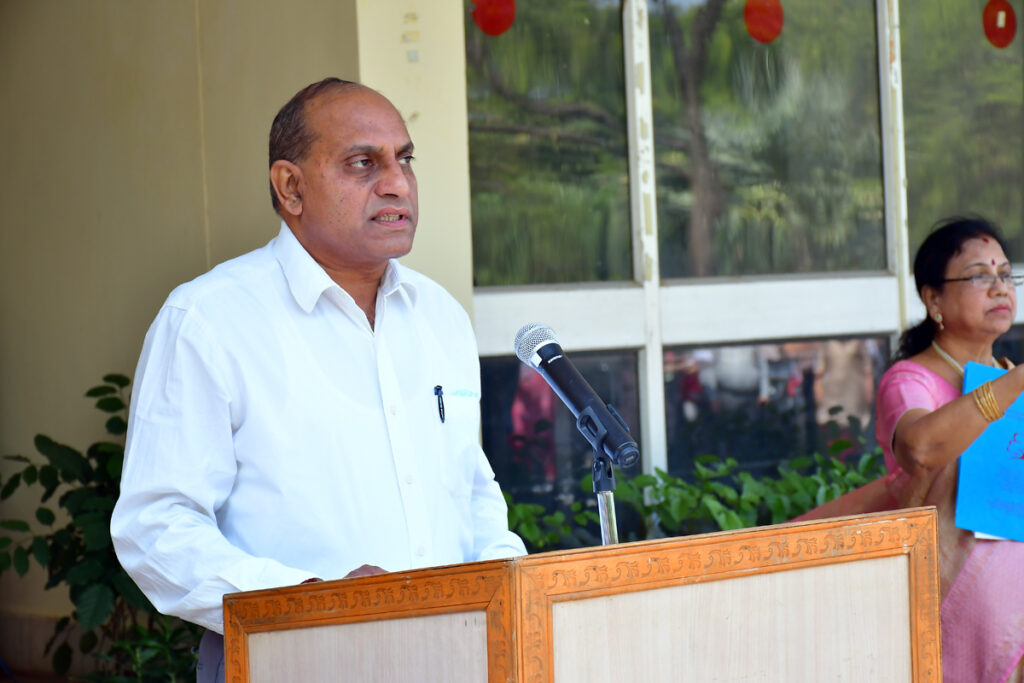
The National Institute of Rural Development Panchayat Raj observed Vigilance Awareness Week under the theme ‘Corruption-free India for a Developed Nation,’ from 31st October to 6th November, 2022 in accordance with the Central Vigilance Commission circular. In order to create awareness among the employees of the Institute, the following programmes were conducted during the week:
- On 31st October, 2022, Dr. G. Narendra Kumar, IAS, Director General, NIRDPR administered the integrity pledge to the employees of the Institute.
- On 1st November, 2022, an essay competition on the topic ‘Corruption-free India for a developed Nation’ in Hindi, Telugu and English was conducted.
- On 2nd November, 2022, an extempore speech was organised on different policies/schemes of the Government of India.
- A quiz competition was held on 3rd November, 2022 on General Knowledge and CCS (Conduct) Rules, 1964, NIRDPR Employees (Conduct) Rules, 1968, CCS(CCA) Rules 1965, CVC Act, 2003, Constitution of India, Sexual Harassment of Women at Work Places (Prevention, Prohibition and Redressal) Act, 2013, GFR, Prevention of Corruption (Amendment) Act, 2018 and RTI Act, 2005. As many as 30 participants in six groups participated in the competition.
- Half-day workshop for faculty was held on 3rd November, 2022 on the topics of Good Governance and Social Audit by internal faculty, drafting of MoU for Contracts and Consultancy Services by Shri A. P. Suresh, Advocate, and Vigilance Management by Shri V. Vijaya Rami Reddy, Sr. Consultant.
- Half-day workshop for Admin and Accounts staff was held on 4th November, 2022 on the topic GFR 2017 – Amendments & Updates, Guidelines for procurement of goods/services through GeM, CPP Portal by Mr. Z. H. Khilji, Chief Finance and Accounts Officer of NAARM. Mrs. A. Jaya Krishna, Manager (Vigilance) spoke about Preventive Vigilance and Do’s & Don’ts for Government Servants.
